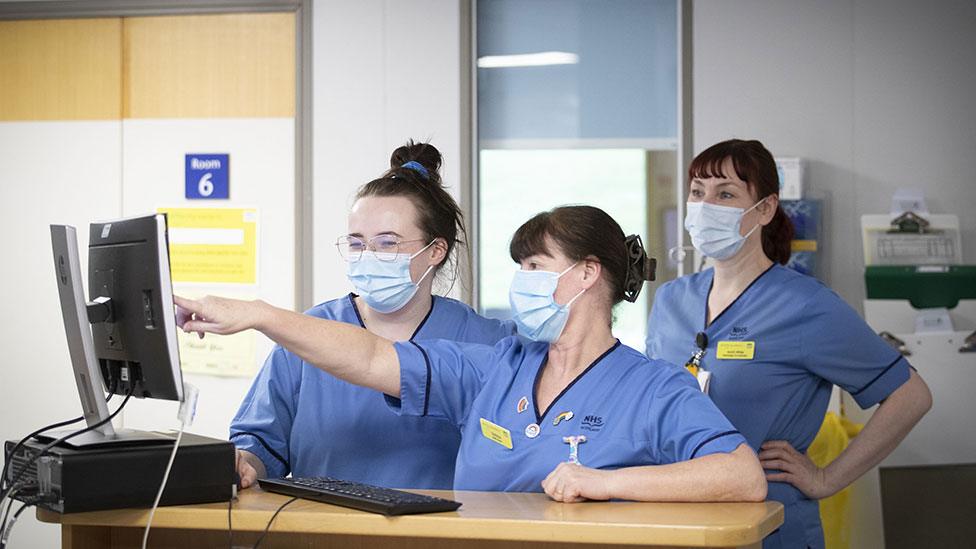Scottish junior doctors vote in favour of 72-hour strike
- Published
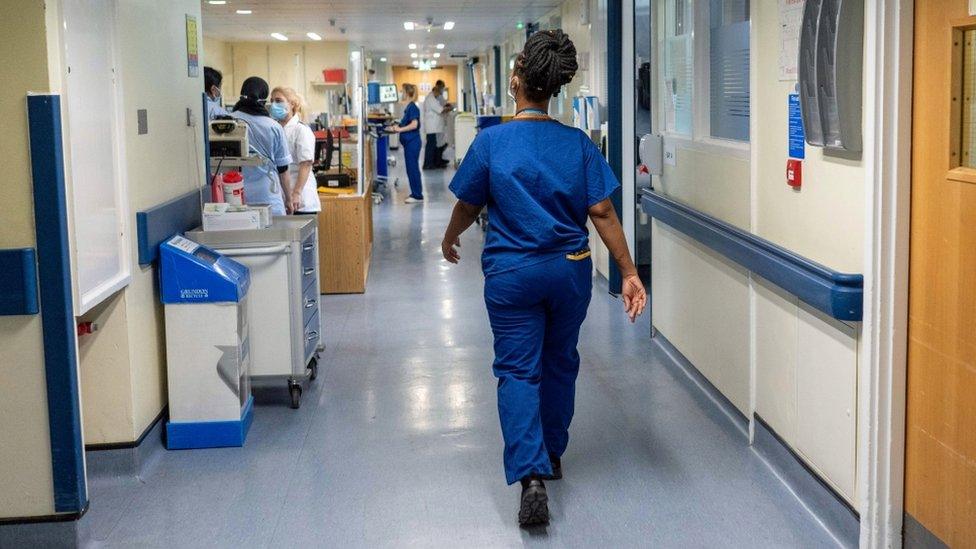
Junior doctors in Scotland have voted overwhelmingly in favour of a three-day strike amid a pay dispute with the Scottish government.
In a ballot of BMA Scotland members 97% voted for 72-hour walkout over calls for a 23.5% increase above inflation.
It follows a strikes by junior doctors in England, who walked out for three days in March and four days in April.
Health Secretary Michael Matheson said he was "disappointed" but that further talks on pay were taking place.
The ballot, which was open for more than five weeks, closed at noon.
More than 71% of the eligible 5,000 junior doctors voted, with 97% in favour of industrial action. A strike would impact planned operations, clinics and GP appointments.
Junior doctors - fully-qualified medics who are not specialty staff doctors, consultants or GPs - make up 44% of the doctors in the NHS in Scotland.
The union said previous pay awards for junior doctors in Scotland had delivered real-terms pay cuts of 23.5% since 2008.
It added that, with rises in inflation, this year's 4.5% uplift was "again being outstripped and the position on pay erosion will be worse by the end of the year".
The BMA has asked for a 23.5% increase on top of inflation, arguing that it is needed to make up for 15 years of "pay erosion".
The union said it would begin preparations for a 72-hour walkout if the Scottish government did not put forward a credible offer. Dates for the strike have not been confirmed.
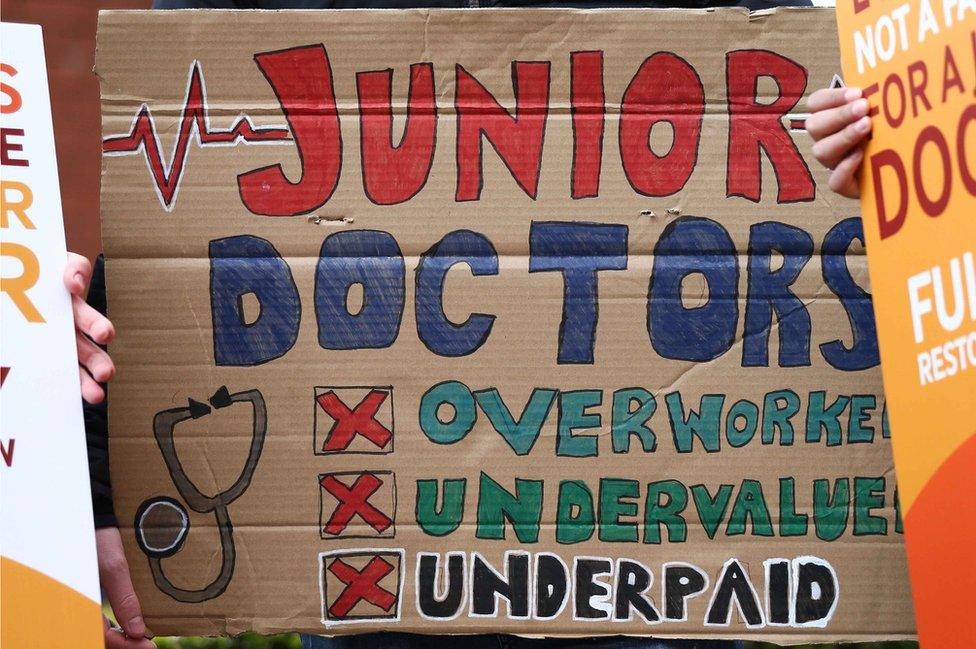
Committee chairman Dr Chris Smith said some junior doctors in Scotland were earning a basic salary that equated to about £14 an hour.
He told BBC Radio Scotland's Drivetime programme 44% of junior doctors in the BMA were "actively considering leaving the NHS".
"That's just because of the low pay driving people away, which means there are gaps in the rotas, which means the work becomes harder, which drives people into burnout - it's just a self-perpetuating cycle," he said.
"What we need to do now is put a stop to that, and to do that we need a good pay offer from the Scottish government."
Dr Smith said the historic strike would be "vital" to protect the NHS.
"This ballot result shows, beyond doubt, that junior doctors in Scotland have had enough," he said, adding that the pay erosion since 2008 was "simply unacceptable".
"We have made, and continue to make, progress with Scottish government in formal negotiations on pay, but there is still some work to do before there is an offer that we believe could be credibly put to members."
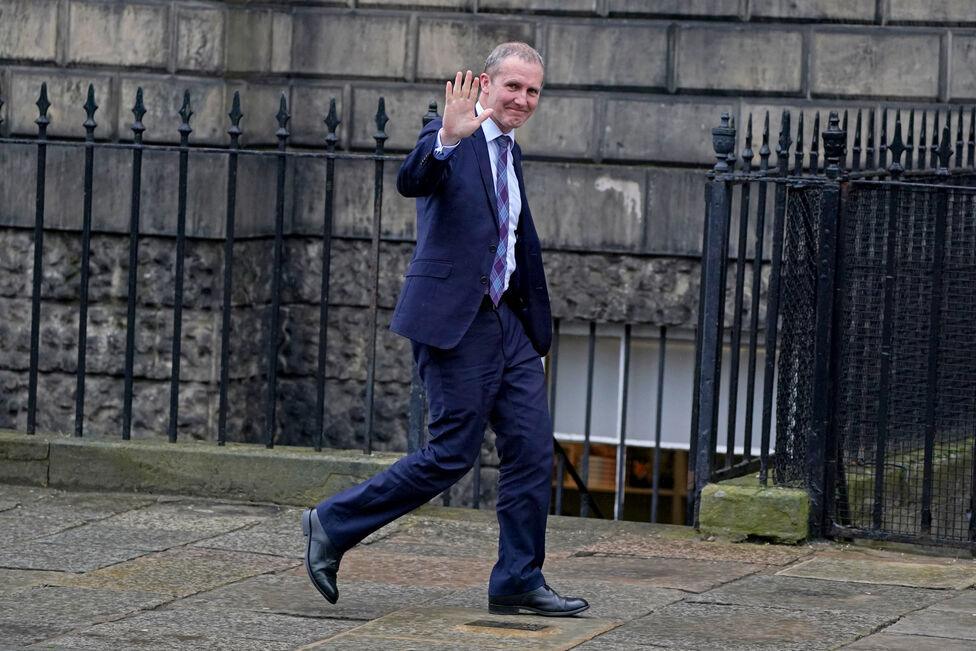
Health Secretary Michael Matheson said negotiations were under way
The Scottish government previously said the BMA demands were "simply unaffordable" unless cuts were made to the NHS and other public services.
First Minister Humza Yousaf will be under pressure to avert the strike having often pointed out during the SNP leadership campaign his record as health secretary on avoiding NHS strikes in Scotland.
Health Secretary Michael Matheson said he was "disappointed" by the result of the ballot.
"I will continue to do all I can to avert industrial action in NHS Scotland," he said. "Negotiations to agree a pay uplift are already under way.
"As these negotiations are held in confidence, it would be inappropriate to offer any further details at this time."
Pay and conditions
Junior doctors had already been awarded a 4.5% pay uplift recommended by the independent Doctors' and Dentists' Pay Review Body, the Scottish government said.
It wrote to the body earlier in the year asking for a "separate and specific" recommendation for junior doctor pay.
Dr Tiffany Li, from BMA's Scottish junior doctors committee, told BBC Radio Scotland's Lunchtime Live the drop in pay in real terms over the past 15 years was the "equivalent of working three months of the year for free".
"What we're simply asking the Scottish government to do is help us to reverse that pay cut and actually bring it back to cost neutral level," she said.
Dr Li said many doctors were leaving the NHS to work abroad where pay and conditions were better.
"Patient care is the centre of what we strike for," she said.
"On a daily basis we are seeing that patients are not getting the care that they need. We're seeing surgeries being cancelled because of a lack of staff an outpatient clinics being cancelled, again because of a lack of doctors."
Strikes would cause disruption to patient care but in a "safe, controlled environment", she added.
'Patients will be alarmed'
Scottish Conservative health spokesman Dr Sandesh Gulhane said it was clear that junior doctors were "at the end of their tether".
"Patients will naturally be alarmed at the impact strike action will have on already unacceptable waiting times," he said.
Jackie Baillie, Scottish Labour health spokesperson, said: "This result has not come out of the blue - it is the product of years of SNP failure to support junior doctors and reward them for their work."
Other NHS Scotland staff previously agreed to pay settlements without their threatened strike action, with nurses, midwives and allied health professionals accepting a 6.5% increase from April on top of a 7.5% pay rise imposed for 2022/23.
Junior doctors in England, who are asking for a 35% pay rise, staged strikes between 13 and 15 March and 11 and 15 April.
UK Health Secretary Steve Barclay described their pay claim as unaffordable, but earlier this week a government spokesman said discussions with the BMA were "constructive" and both parties would meet again in the coming days.
- Published17 March 2023
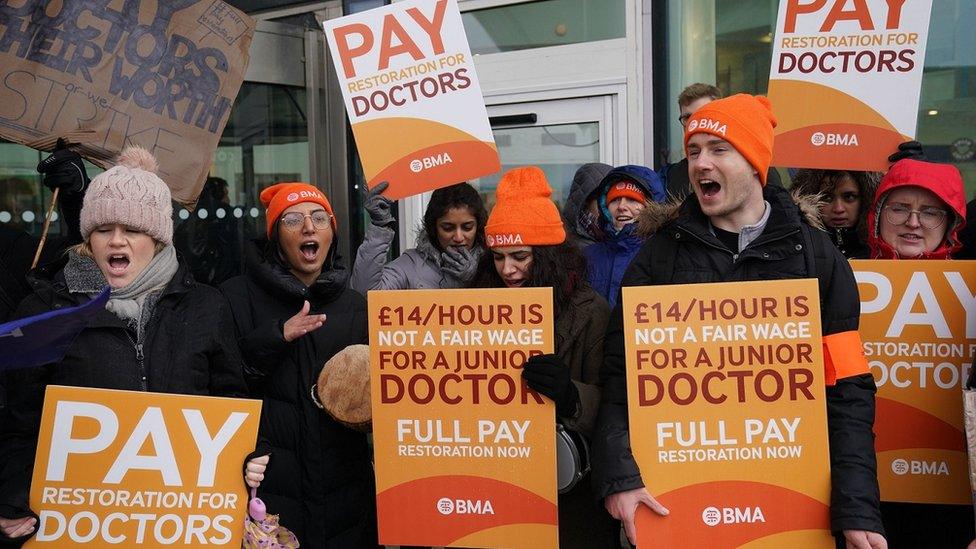
- Published29 March 2023
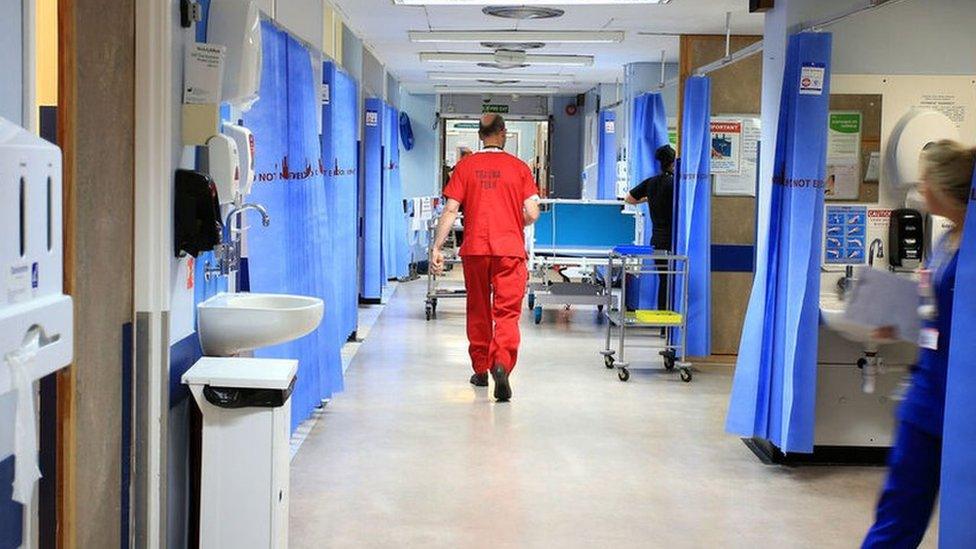
- Published20 March 2023
